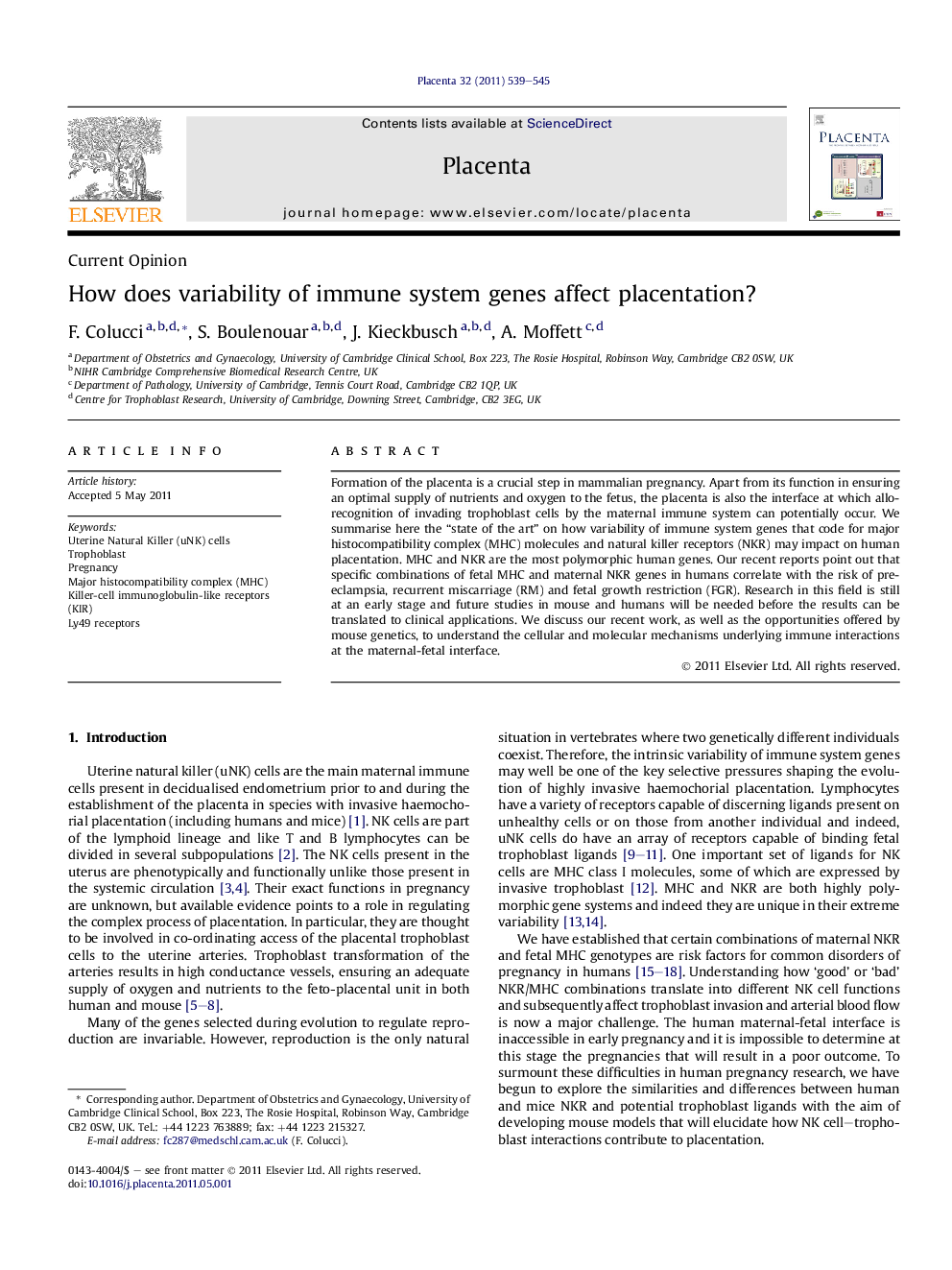| Article ID | Journal | Published Year | Pages | File Type |
|---|---|---|---|---|
| 5895933 | Placenta | 2011 | 7 Pages |
Abstract
Formation of the placenta is a crucial step in mammalian pregnancy. Apart from its function in ensuring an optimal supply of nutrients and oxygen to the fetus, the placenta is also the interface at which allo-recognition of invading trophoblast cells by the maternal immune system can potentially occur. We summarise here the “state of the art” on how variability of immune system genes that code for major histocompatibility complex (MHC) molecules and natural killer receptors (NKR) may impact on human placentation. MHC and NKR are the most polymorphic human genes. Our recent reports point out that specific combinations of fetal MHC and maternal NKR genes in humans correlate with the risk of pre-eclampsia, recurrent miscarriage (RM) and fetal growth restriction (FGR). Research in this field is still at an early stage and future studies in mouse and humans will be needed before the results can be translated to clinical applications. We discuss our recent work, as well as the opportunities offered by mouse genetics, to understand the cellular and molecular mechanisms underlying immune interactions at the maternal-fetal interface.
Related Topics
Life Sciences
Biochemistry, Genetics and Molecular Biology
Developmental Biology
Authors
F. Colucci, S. Boulenouar, J. Kieckbusch, A. Moffett,
